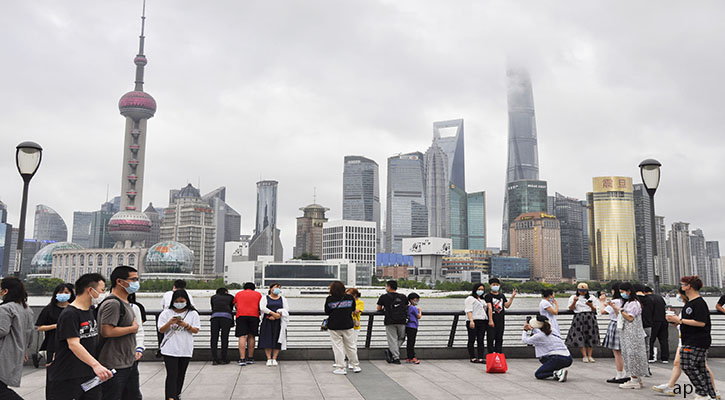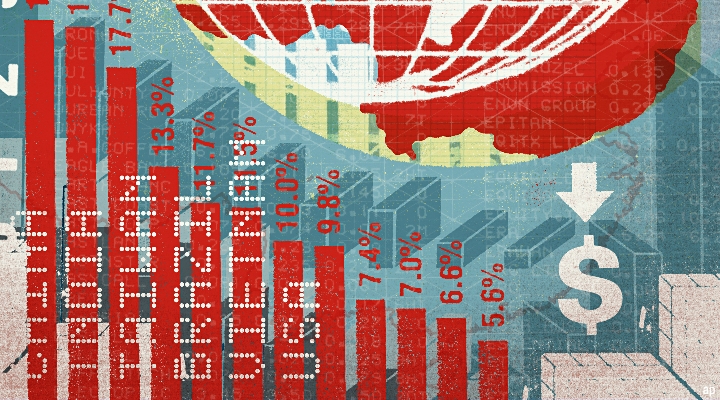
It’s a really tough time to be an equity investor and that’s no different for those backing emerging and frontier markets.
Markets are said to climb a wall of worries and these are almost too numerous for an EM investor: war in Ukraine, inflation, commodity prices, unrest in Sri Lanka, food riots, the strengthening dollar, zero Covid-19, and the likelihood of debt defaults.
These are "known unknowns", and formidable reasons in and of themselves for shunning stocks and funds from riskier countries. Amid the gloom, we consider the outlook for emerging markets this year and beyond.
We last wrote about EM at the end of 2021, when we noted that EM investors wanted a "recoupling". US and other developed markets were booming and emerging/frontiers were once again lagging their developed counterparts. At the mid-point of 2022, that has become a reality, but only because major stock markets have slumped as the tech bubble bursts.
One of the arguments put forward for EM and frontier markets is that their returns are uncorrelated with developed rivals. That certainly hasn’t been the case this year: the S&P 500, MSCI EM and MSCI Frontiers are all off around 20% so far in 2022.
Long-term dislocation in performance has been stark because of the recent golden decade for US tech: the S&P 500 has returned around 15% annualised over 10 years, but the MSCI EM has put in 3%. Textbook investment theory suggests investors get paid more (or at least expect to) for taking more risk. That theory has been dismantled in the last 10 years but EM fans argue that in the very long term, faster economic growth will result in higher equity returns, reflecting the increasing dominance of China and India on the global stage.
Is the Globalisation Dream Dying?
Sticking with the downbeat tone, trade conflicts are one example of a world where the biggest powers are increasingly at odds with each other.
China’s diplomatic alignment with Russia this year has highlighted the idea of "the West versus the rest", which has serious implications for global growth.
"The world is fragmenting." So noted Joachim Fels, Pimco’s global economic adviser, at the latest Morningstar Investment Conference. From an investment point of view, that means "there may be less capital flowing from developed markets into certain emerging markets and vice versa", he added.
Looking at returns for countries with a dedicated Morningstar index doesn’t make easy reading: 19 of the 26 nations on the list are down on the year, and, in the case of countries like Hungary, they are down significantly.
That’s not surprising in a year when most global markets, from megacap stocks to crypto, have crumbled. Given the commodity bounce this year, the benefit of being an oil or metal producing country are clear: Brazil, Saudi Arabia, Indonesia, Chile, Kuwait and the UAE are among the main beneficiaries of one of this year’s biggest trends.
Currency also plays a part here as the returns are quoted in dollars. What’s striking also is how many of 2021’s top performers struggled to match this in 2022 (so far): the Czech Republic, the top performer with a gain of 52% in 2021, is down 3% in 2022.
That’s a common feature of EM and frontier markets: one year of outsized returns is often followed by a mediocre year. But with 24 emerging, 29 frontier and 13 standalone markets to chose from, a well-diversified fund should be able to capture some of the upside. It's always worth checking the country make-up of your fund.
Is China a Counterweight?
Are there any reasons to be optimistic in such a traumatic year?
Because of its heavy weighting in the index, China could be key to a turnaround story. It’s too early to call it, but China funds had a very strong June after a weak start to 2022. With the US potentially about to go into recession amid a sharp tightening cycle by the Federal Reserve, there’s an argument China could be a hedge against this scenario. Daniel Casali, chief investment strategist at Evelyn Partners (formerly Tilney Smith & Williamson) argues that, in a world that’s tightening, Beijing is heading in the opposite direction.
"Easing policy in the world's second-largest economy should also offset the US’s shift to raising interest rates and help sustain the global business cycle," he says.
"The most important thing to note is China’s credit cycle tends to lead to positive performance in emerging Asian equities relative to developed markets."
Amid all these challenges, what are emerging market fund managers doing?
Andrew Ness, portfolio manager of the Neutral-rated Templeton Emerging Markets Investment Trust (TEMIT), is expecting higher material and energy prices to persist even during a global slowdown. To this end, the trust has added commodity stocks with "high cash flows and strong shareholder return policies". But the trust has taken profits in Brazil and Indonesia, which have performed well during the commodity boom.
Chetan Sehgal, the trust’s lead portfolio manager, says that there is scope for gains in the sectors like semi-conductors and electric cars, areas where EM companies excel.
Dan Morris, chief investment officer of systematic investments at Allspring, argues exposure to commodities and currencies linked to commodities, can provide a useful hedge for further surprises in inflation.
Does this mean emerging and frontier markets are set for a long-overdue period of outperformance? The evidence so far in 2022 is mixed. For now, EM investors may have to cling on to the dream of "jam tomorrow" and buckle up for another volatile few years.





























